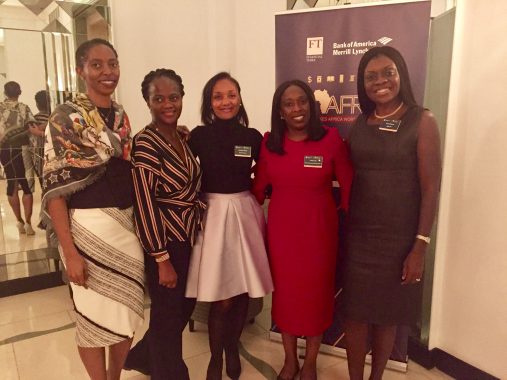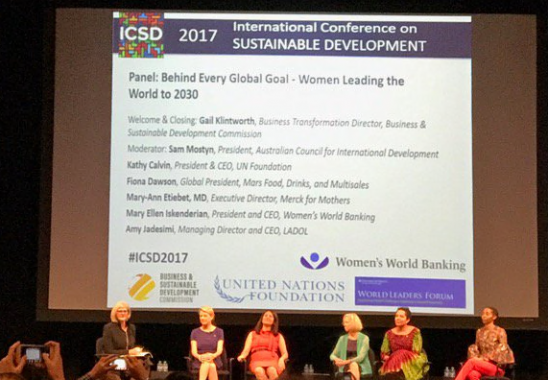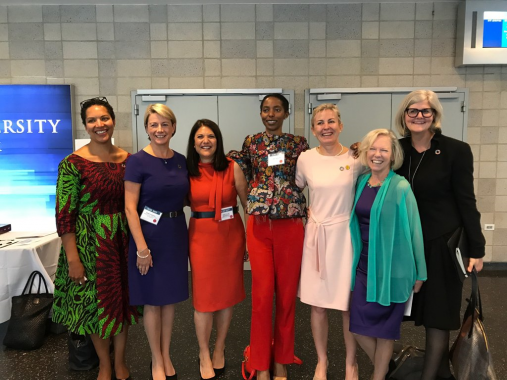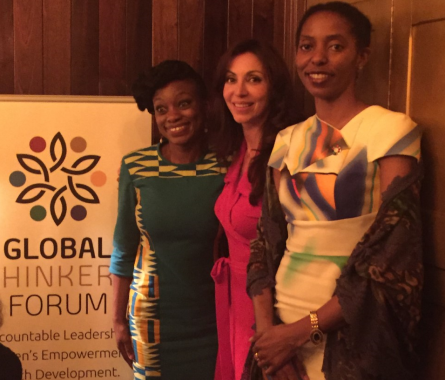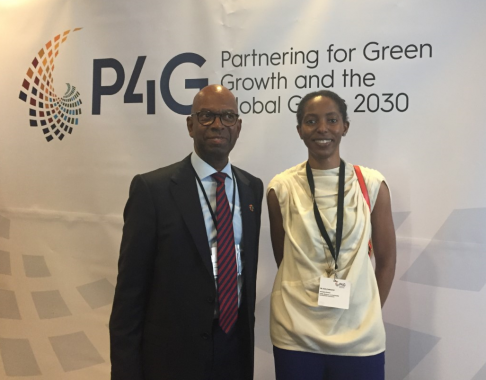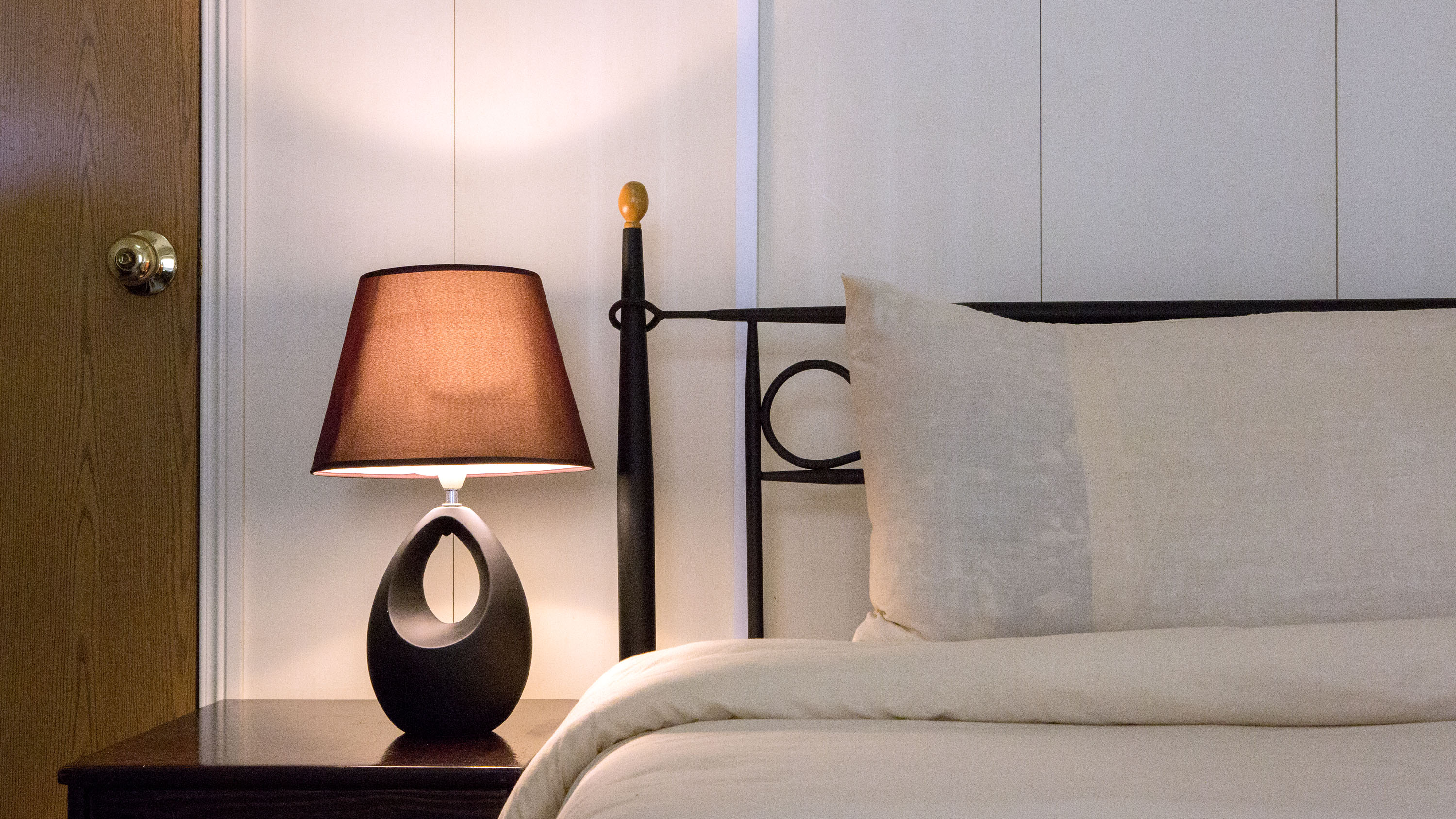Blog Archives
LADOL Sponsors FT Africa Summit 2017
LADOL was a primary sponsor of the recent FT Africa Summit 2017 – what makes Africa work.
Too often we focus on Africa’s problems, whether of governance, commodity dependency, poor infrastructure or entrenched poverty. Without taking a rose-tinted view, this year’s FT Africa Summit aimed to shift the focus to what is working in Africa in the hope of drawing broader lessons that could benefit the continent as a whole. In that spirit, the agenda turned the spotlight on what is going right – without, of course, losing sight of what is going wrong or what could be done better. The most pressing questions were asked of a range of business people, policymakers, investors, practitioners and innovators including LADOL MD Dr. Amy Jadesimi. The summit focussed on Africa telling its own stories and learning from its own complex and diverse experience.
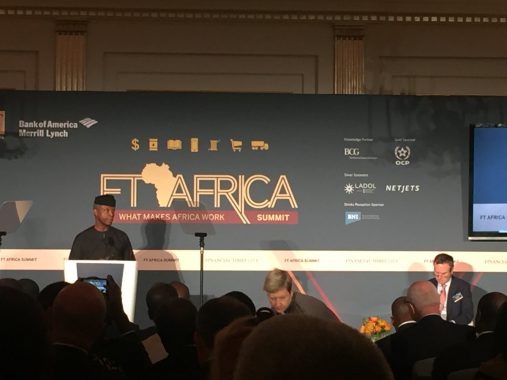
Vice President Yemi Osinbajo at the FT Africa conference, sponsored by leading African and international companies including LADOL
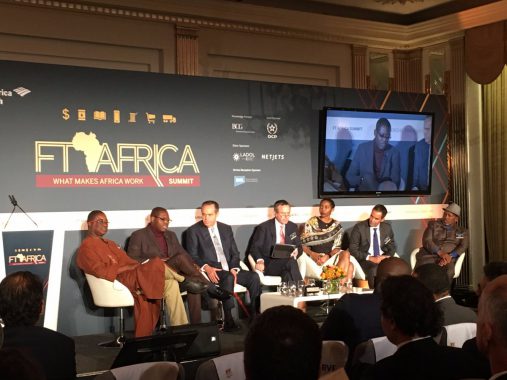
Dr. Ami Jadesimi speaks after VP Yemi Osinbajo on putting job creation first and Sustainable Industrialisation in Africa.
LADOL MD Attends Sustainable Development Impact Summit
LADOL MD, Dr Amy Jadesimi, has recently attended the Sustainable Development Impact Summit at the World Economic Forum in New York.
The World Economic Forum (WEF) recognizes that delivering on the ambitions of the 2030 Agenda for Sustainable Development and the Paris climate agreement will require accelerating public-private cooperation and deploying new technological solutions. So the WEF Sustainable Development Impact Summit covers a wide range of topics from gender parity to circular economy and technology. The Summit aims to bring together leaders from government, business, academia and civil society who will be present in New York during the United Nations General Assembly:
– Increase the impact of existing multi-stakeholder initiatives
– Catalyse new partnerships and alliances
– Explore how the advanced technologies of the Fourth Industrial Revolution could be better leveraged for sustainable development.
Nigeria – Separating Fact From Fiction, Forbes
LADOL CEO, Amy Jadesimi has written an article for Forbes magazine entitled “Nigeria — Separating Fact From Fiction To Restore A Nation’s Tarnished Image” to try and dispel the inaccurate image of Nigeria portrayed in the world’s media. The Full text of the article can be read below.
Running a legitimate private sector company in Nigeria is fraught with challenges. Of those challenges, the negative perceptions of Nigeria’s business environment from both local and international sceptics is one of the most difficult to overcome. In the worst cases, one is assailed with questions and concerns more appropriately addressed to someone running a company in non-specific barren war-torn country run by pirates. In reality, Nigeria is a largely peaceful, democratic country where the rapidly growing legitimate private sector is creating a level of growth and profitability that will soon rival Brazil.
However, that’s not to say there aren’t challenges. The World Bank’s Ease of Doing Business index ranked Nigeria 169th out of 190 countries in 2016 and the country’s worst recession in 25 years is keeping investor expectations low. Until recently, Nigeria had a heavy handed government famous for colluding with multinational companies and foreign governments, enriching a select few and keeping the economy from generating any sustainable momentum. Unfortunately, this chequered past means that Nigeria is still considered a market only suitable for high-risk investors and oil companies.
Unfortunately this misperception overlooks the resilience and year on year growth of Nigeria’s legitimate private sector and the new generation of Nigerian leaders that are changing the status quo. President Buhari’s implementation of business focused Executive Orders show that this government is committed to reversing the damage done to the economy by previous administrations which smothered the legitimate private sector.
In April 2017, President Buhari issued a directive putting an end to a long-standing corrosive monopoly in the maritime and oil and gas logistics sectors. This directive was noted for its solid legal basis, going so far as to rule out the return of such monopolies acknowledging the huge economic damage they inflict. Then, in May 2017, Executive Orders were put in place to ensure the government stays out of the way of real businesses and eliminates the temptation for government officials to extort the companies seeking to ply their trade legally. Such strong legal positions have reassured local business owners that this government supports transparent, value adding companies and is willing to uproot long-standing quasi-private enterprises that have benefited from cronyism for years.
Huge strides have also been made in the maritime sector. Being Africa’s largest and most populous country and home to West Africa’s longest coastline, Nigeria is a natural hub for the continent. But for decades it has failed to live up to this potential. Now under the leadership of Hadiza Bala Usman, one of Nigeria’s newest and youngest leaders, the Nigerian Ports Authority (NPA) has been transformed into an organisation that actively promotes competition and investment. The NPA has rapidly embraced Buhari’s directives and is leveraging them to create an efficient, technology driven parastatal which is discussing multi-billion-dollar investment opportunities on the world stage.
Certainly, the Nigerian government has a long way to go, but in a world where many governments seem to be openly and increasingly acting against the interests of their voters, Nigeria’s leadership is taking drastic steps to break with its past and move in the right direction.Real private sector leaders, those that have been investing and struggling for decades against the odds, are increasingly optimistic. The challenges they face today, from financing to manpower, pale in comparison to the almost insurmountable hurdles that they confronted from their own government and the multinationals that colluded with and instigated rent seeking in the past. Now that the playing field is being levelled, they are rapidly gaining traction.
The UN forecasts that by 2050 Nigeria and greater sub-Saharan Africa will make up 22% of the world’s population. This impressive population growth not only alludes to the immense human capital resources at sub-Saharan Africa’s fingertips, but also how critical this region is to global growth and stability. Even as the growth in established Western countries continues its complex decline the negative perceptions held about Nigeria prevent people from seriously looking at its opportunities.
Given the importance of this region now and going forward, it is imperative that Nigeria’s leadership does not give up on the struggle against corruption and negative perceptions. The good news is that the reality is already much better than the perception and continues to improve every day.
USTDA hails LADOL as haven for investment
The United State Trade and Development Agency (USTDA) has commended the Lagos Deep Offshore Logistics Base (LADOL) as a safe haven for investment and having great capacity for job creation in the African sub-region.
This is coming just as the Federal government as well as Lagos and Oyo states governments have indicated interests in collaborating with the private oil and gas services yard in undertaking trainings and skills development for the youths.
Acting Director of USTDA, Mr. Thom Hardy, who expressed delight at the massive private investment when he led a five-man delegation to the LADOL Free Trade Zone in Apapa, Lagos, Friday, said the base would no doubt add value to youths development efforts of the Nigerian governments at various levels.
LADOL is currently playing host to the integration of a $3.8billion oil and gas exploration platform otherwise known as Egina project which has been described as first-of-its-kind in the Sub-Sahara Africa.
The Egina Floating Production Storage and Offloading (FPSO) project is being undertaken by Korea-based Samsung Heavy Industries (SHI) for TOTAL Oil Exploration, with LADOL acting as the local content partner.
Speaking with journalists after the facility tour, the American envoy said his team was on a fact-finding mission to ascertain how businesses were carried out in Nigeria as to seek ways of encouraging American investors to invest in the country.
LADOL logistics base set for expansion
Facing an uphill battle, the privately owned West African free zone and logistics hub Lagos Deep Offshore Logistics Base (LADOL) has been rapidly expanding over the past 15 years and has established itself as an important logistics base for international oil companies. It now has its long-term sights set on diversifying away from oil and gas.
Global Trade Review (GTR) speaks with LADOL managing director and CEO Amy Jadesimi about how the free zone is evolving into a platform for industrialisation across West Africa, and the challenges it faces.
GTR: What is LADOL and how did it develop?
Jadesimi: LADOL is an industrial free zone. It was built out of a disused swamp inside of Apapa Port, which is probably the busiest container terminal in West Africa. It’s basically an island: we get to it over the water. We chose that location because we knew we had to be completely independent to achieve our aim, which is to create opportunities for large industrial projects to happen in Nigeria for the first time.
The largest industry in Nigeria is oil and gas, so we started with focusing on that by building a specialised logistics base. We, as the base operator, provide all the facilities through which services are delivered to our clients, as opposed to what happens in other logistics bases in Nigeria, which are basically converted government facilities and tend to be very bloated with many people doing the same thing.
GTR: Can you outline the various phases of development, what has been achieved thus far, and what are your plans for the future?
Jadesimi: The founders of LADOL started investing in the concept in 2001. They started investing on the ground in 2004, so the investment on the ground has been going on for 13 years. Phase one included a logistics base, hotel and offices, all of which were completed in 2011.
As part of phase two, LADOL has built the largest shipyard and installed the heaviest crane capacity in the region. The shipyard is currently constructing and will do the final integration of a floating production storage and offloading (FPSO) vessel for Total’s US$16bn Egina deepwater field. The vessel will be the largest to ever berth in West Africa, and the first FPSO to be fabricated and partially integrated in Nigeria, despite the fact that Nigeria has spent US$30bn or so building similar vessels in the past, without seeing much happen locally.
Also part of phase two is a 50MW gas-fired power plant, a new hotel and a liquid mud plant, which are currently being built and will be completed over the next 24 months.
For phase three, over the next decade we plan to develop the remaining infrastructure in the free zone to support non-oil and gas industrial activity. Our strategic focus is on supporting and attracting manufacturing and engineering businesses that have a multiplier effect on job creation and which use innovation to develop sustainable business models, disrupting current systems that perpetuate poverty. Phase three will also be distinctive in that the developers plan to significantly increase the level of sustainability in the design and layout of the free zone. In addition, we want to attract manufacturing and engineering companies with sustainable business plans and operations to set up in the zone to industrialise West Africa and be part of what will be one of the world’s largest growth markets.
GTR: Are there other, similar logistics bases in Nigeria?
Jadesimi: In Nigeria, no. Historically, our oil and gas has come from the Niger Delta, which is where the biggest logistics servicing facility is located. But this is a very different set up to LADOL. It is funded by the government. It is a very open design, whereby some of the facilities are in nearby towns, so you don’t have the streamlined, fully-integrated facility, where everything is done within one ecosystem.
The market LADOL is servicing is very different, which is why we set up a unique, fully-integrated facility. We are servicing the offshore and deep offshore market. Our target clients are people who are drilling in the middle of the ocean, sometimes 3,000 metres deep. This is a very expensive setup, costing US$20-30 a barrel, although we are trying to reduce that cost. And so, when you are servicing an operation like that, what we realised is that it’s better done from a location like Lagos where you can operate 24/7, you can quickly get in and out of the facility, and you need a custom-built logistics base that is very streamlined and efficient. Everything is set up by the base operator, which means we take all the capital expenditure risk and then people come and deliver their services through facilities that we have already built.
GTR: Given the global oil scenario, what fuels your confidence that LADOL’s built capacity will be utilised?
Jadesimi: The current oil price is driving a lot of business to LADOL. Oil majors have known for over a decade that for deep offshore blocks, Lagos is the optimal support location – LADOL is the embodiment of the ideal logistics base envisioned by Shell, Chevron and ExxonMobil when they first tried to build a base in Lagos. By building the base ourselves, LADOL has also demonstrated the need for international oil companies to support legitimate private sector companies in the sector to cut costs and ensure long-term stability. Interest in Nigeria’s offshore oil and gas assets is still high because Nigerian companies like LADOL and the current government policies have made Nigeria highly competitive.
GTR: How is LADOL financed?
Jadesimi: Since we have been going, for over a decade, financing has been challenging to say the least. Initially LADOL was financed with equity from ourselves. The Bank of Industry, a Nigerian bank, was the first major equity investor. We expect to go to another financing ground next year. We have also received bank loans. The financing challenges are one of the reasons why it has taken some time to get the infrastructure built.
GTR: Have you sought or achieved any kind of international financing?
Jadesimi: That is what we are doing next year. We wanted to get a few things in place, and position ourselves. With a project like LADOL, the idea of giving money to a relatively small private company to incrementally build a sustainable industrial free zone is a new one, albeit one which the development institutions are just now getting their heads around. We are talking to them.
GTR: How receptive has the Nigerian government been to what you have achieved so far and to your plans for the future?
Jadesimi: It has been an uphill battle: explaining who we are and getting over the fact that by adding value and adding transparency, particularly with our logistics activities in the oil and gas sector, we are shining a light on a lot of improper things that were happening before. To be honest, the pushback we have had over the past decade is far more than we had anticipated.
However, I would say that this government has taken a very clear position and a very clear stand. The president issued a policy recently which confirmed the fact that the maritime sector and oil and gas logistics sector was a liberal sector and that everybody had a right to participate. It even made specific reference to LADOL, commending us for our investment and basically saying that under this new government, they wanted to encourage the creation of more LADOLs.
I would say it has been an uphill battle for lots of reasons. One of the most effective things we have been able to do is to educate the government and civil society and other private sector companies about the benefits that come from opening up the market to the private sector in this way. Where we are at now is a place where we will see a lot more private investment coming in over the next decade.
Executive Director speaks at Nigerian Diaspora Direct Investment Summit
Jide Jadesimi, Executive Director of LADOL, was invited to speak at the Nigerian Diaspora Direct Investment Summit (NDDIS) recently held in London. The 4th NDDIS is dedicated to mobilising the Diaspora to set up small and medium scale industries in Nigeria to create employment for young Nigerians to address the issues, to stimulate solutions, to create deals and to move beyond the usual ‘talkshop’. Nigeria’s huge Diaspora population can be a portent force for national transformation. The High Commissioner of Nigeria to the United Kingdom will declare The Summit open.
The NDDIS was set up with the following remit.
-It will provide the opportunity for Nigerian States to lay out their projects and programmes and to engage with the diaspora to maximize the effectiveness of every investment and every project.
-It will give the Federal Government and it parastatal Agencies the opportunity explain their strategies and the incentives and opportunities they are creating
-It will give the diaspora the opportunity to engage directly and bring forward projects and business opportunities that matter to them and their families and their communities.
-International investors will be offered qualified investment opportunities in Infrastructure, Agriculture, Industry and Services.
Watch the video of Jide Jadesimi’s presentation here.
LADOL CEO invited to Afreximbank AGM
The African Export-Import Bank (Afreximbank) held its 24th Annual General Meeting of Shareholders (AGM) in Kigali from 28 June to 1 July with participation by some of Africa’s most high-profile political and business leaders, joined by leading international experts.
LADOL Managing Director, Dr. Amy Jadesimi, was invited to the event as a guest speaker.
LADOL CEO attends G20 Africa Summit
LADOL Managing Director, Dr. Amy Jadesimi, recently attended a G20 conference focussing on the development of Africa and hosted by the German President of the G20 in Berlin.
The summit was organised to propose the ‘G20 African Partnership Initiative’ to spur private investment in infrastructure and employment. The Partnership intends to support related political initiatives of the G20 and facilitate joint commitments (Investment Compacts) between African countries, G20 Partners and International Financial Institutions. Compacts should be demand driven and form the basis for long-term cooperation, with the aim of creating a sound investment climate in relevant sectors of selected African economies. The initiative builds on existing regional and international strategies and can be viewed in the context of addressing root causes of migration.
The G20 is comprised of 19 countries plus the EU. The countries are Argentina, Australia, Brazil, Canada, China, France, Germany, India, Indonesia, Italy, Japan, Mexico, Russia, Saudi Arabia, South Africa, Republic of Korea, Turkey, the UK and the US.
LADOL continues to mark milestones as deepwater port
Lagos Deep Offshore Logistic Base (LADOL) is awaiting what is considered to be a historic moment in the development of the country’s offshore oil and gas industry. Having fabricated part of the topsides of Total’s Egina FPSO, it will soon receive the completed hull for integration, making it, according to LADOL Managing Director, Dr. Amy Jadesimi, the first such procedure to be completed in Nigeria.
“Finally, everyone is in [agreement] on the importance of making Nigeria the hub for West Africa, and how facilities like LADOL are crucial to making that happen,” she said.
Relating this achievement to the Nigerian market, she said that this was only the first step, one for LADOL and other Nigerian ports to continue to build upon – something, she told Offshore, that government officials including newly appointed secretary of the Nigerian Content Development and Monitoring Board Simbi Kesiye Wabote are encouraging.
“He [Wabote] also wants to see pricing coming down, because when local content works, you end up getting tremendous cost savings for the industry,” Jadesimi said. “It brings down the cost of doing business because you are operating close to your oil block, you are using local people, and you are manufacturing locally.”
LADOL is implementing several plans to streamline its processes and make them more cost-effective.
Like most of the industry, ways to decrease cost is of increased importance to Jadesimi and her team. She said although oil companies have always wanted to curtail spending, the recent oil price crisis has actually helped bring these abstract pricing discussions about saving money into more concrete terms.
“As soon as the oil price fell, these discussions became very real. We have been able to make a lot of headway this year, in bringing on board IOCs with our business model,” she said. “Our facility is specialized for offshore, so it is a very streamlined, fully integrated business model, [meaning that] we as the base operator provide all the facilities through which the services are delivered.”
As an example, Jadesimi revealed that LADOL was building its own mud plant to service all companies using the yard, with service providers providing design input. Once completed, the oil companies’ chosen service providers will deliver service through this facility. She said that it will cut down on costs for both sides, eliminating the need to maintain multiple plants. It is also designed to allow LADOL to maintain the quality control to a very high standard.
Jadesimi said that model was being replicated across the yard’s facilities, pointing to a roll-out of an extensive cashless and paperless enterprise resource planning system related to its warehouse inventory. She also acknowledged at least one area where LADOL had looked outside of its country for external models.
Channels TV Interviews LADOL Executive
Jide Jadesimi, Executive Director of LADOL, was recently interviewed on the Business Morning program of Channels TV. Discussing the subject of local content development in the Nigeria energy market and the role of local investors, Jide explained how LADOL is contributing to these initiatives and helping to boost the economy.
Watch the full video below.


